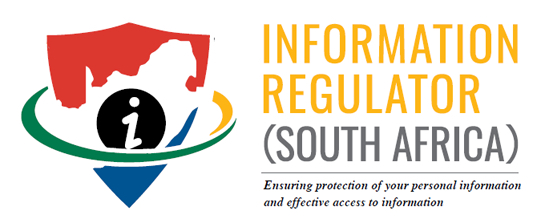South Africa’s Information Regulator’s Popia Launches Live Online Portals
The Information Regulator has established online portals for public and private bodies to use to submit their Promotion of Access to Information Act (Paia) section 32 reports and to register their information officers (IOs).
In a statement, the regulator said the online portals are meant to improve efficiency. It has promised quick turnaround for submission of section 32 reports and registration of IOs.
“Manual applications will continue to be administered to accommodate special circumstances. However, we strongly encourage all public and private bodies to use the portals because it is cost-effective and saves time.
The regulator exercises its powers and performs its functions in accordance with Popia and Paia

“The regulator exercises its powers and performs its functions in accordance with Popia and Paia. Its mandate is to enforce and monitor compliance by public and private bodies with the two pieces of legislation, so as to ensure the protection of information and effective access to information for all persons,” it said.
Read also : Nigerian Fintech Startup Vella to Boost Borderless Money Transfers
Paia gives effect to section 32 of the constitution, which provides that everyone has the right of access to any information that is held by the state as well as any information that is held by another person that is required for the protection of any rights.
Section 32 of Paia applies to public bodies, which are any departments of state or administration in the national, provincial and local municipalities, or any other public institution exercising power in terms of the constitution.
Public bodies also include any other institution exercising public power or performing a public function in terms of any legislation.
IOs are obligated to submit section 32 reports to the regulator annually. IOs are by default the heads of departments, administrations and municipalities, such as director-generals and municipal managers.
“The purpose of the report is to give an account of the number of requests for access received; access granted in full; access granted in terms of section 46 (mandatory disclosure in the public interest); access refused fully or partially; cases extended; internal appeals to relevant authority; and the number of internal appeals that were refused on the ground that an internal appeal was regarded as having been dismissed,” the Regulator explained.
The annual reports currently due for submission are for the financial period 2021/2022. Public bodies must submit their annual reports by 9 September 2022.
Read also : Cameroon’s Taaply Raises $500K To Digitize Business Cards
Popia was enacted to promote the protection of personal information processed by public and private bodies and introduces minimum conditions for the lawful processing of personal information, and an obligation on IOs of public and private bodies to designate and delegate any power or duty to deputy IOs.
Public and private bodies who had registered using the manual registration and received their certificates are advised not to reregister.
“The registration portal is for public and private bodies to register their IOs with the regulator before an IO assumes their duties. The IO is responsible to ensure that the body complies with the eight conditions for lawful processing of personal information,” the regulator said.
The Information Regulator had previously introduced a manual process for registration, which was used while it was reconfiguring the online system that had technical glitches in 2021.
“Public and private bodies who had registered using the manual registration and received their certificates are advised not to reregister. The portal has been upgraded and will have the functions to register IOs, allow for amending, and updating details of the respective bodies.
Read also : Nigerian Fintech Startup Vella to Boost Borderless Money Transfers
“Public and private bodies should comply with these requirements and use the portals made available. It is to be noted that non-compliance with these statutory requirements is a contravention of the law.”
Kelechi Deca

Kelechi Deca has over two decades of media experience, he has traveled to over 77 countries reporting on multilateral development institutions, international business, trade, travels, culture, and diplomacy. He is also a petrol head with in-depth knowledge of automobiles and the auto industry



